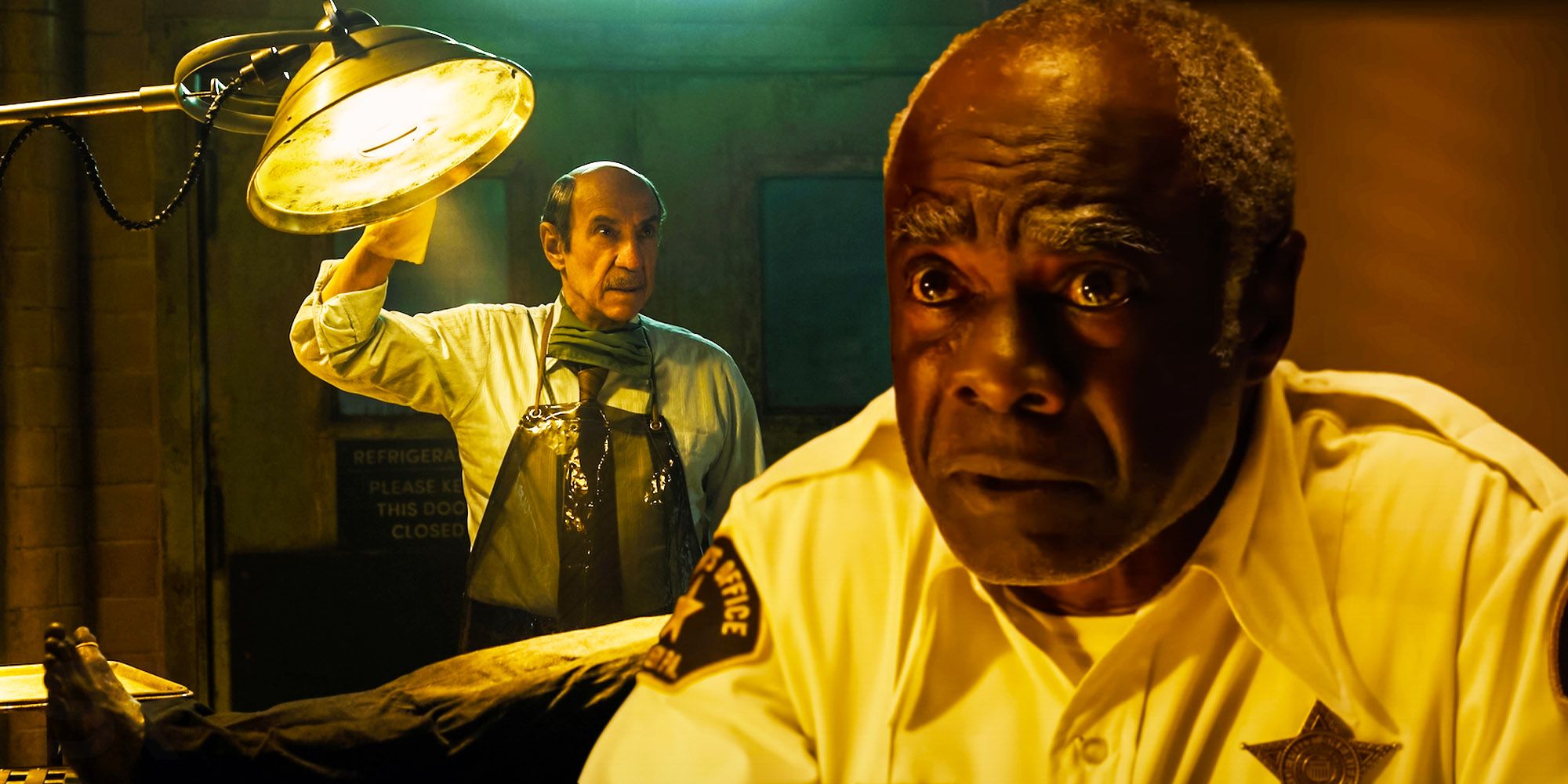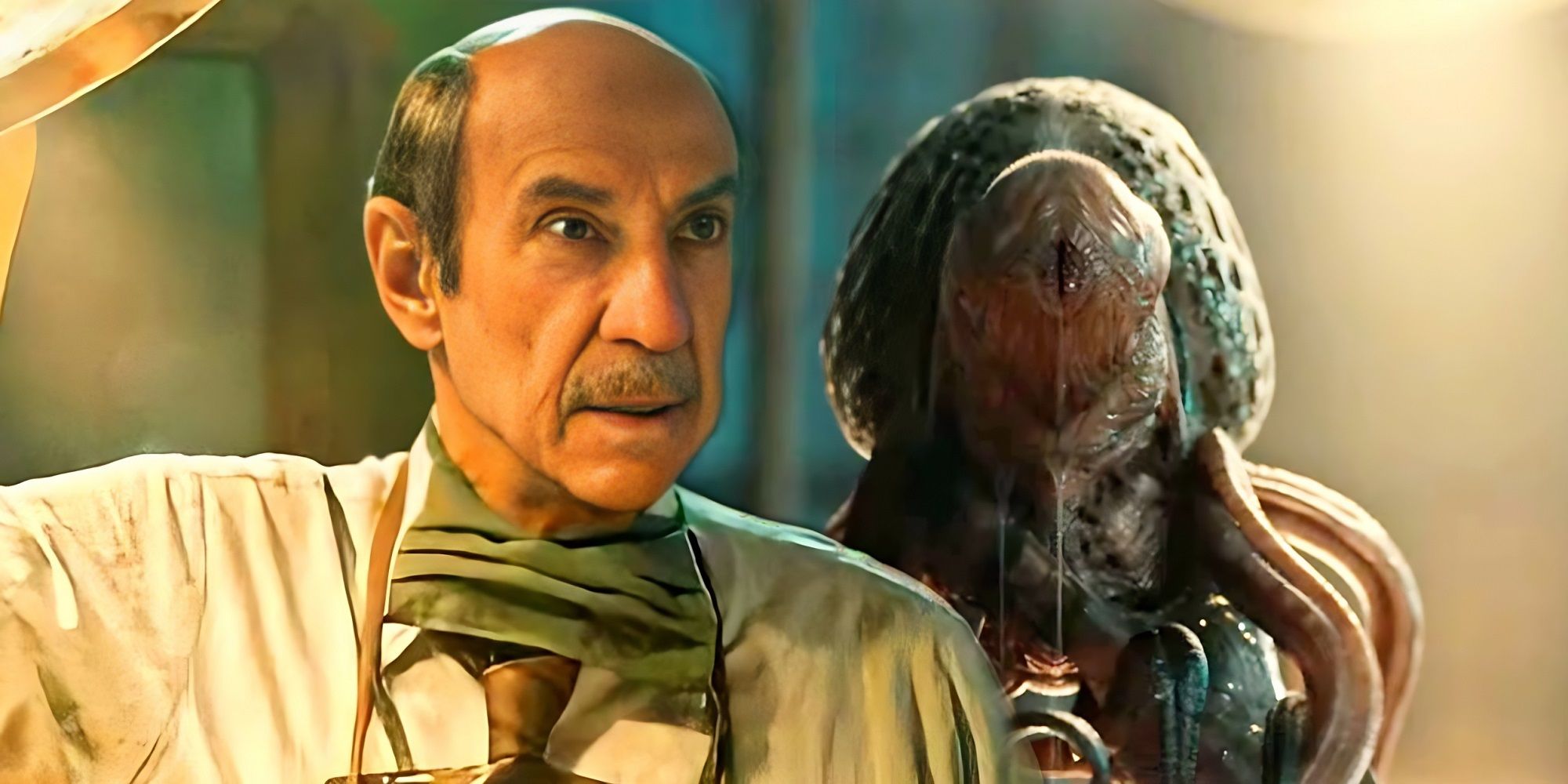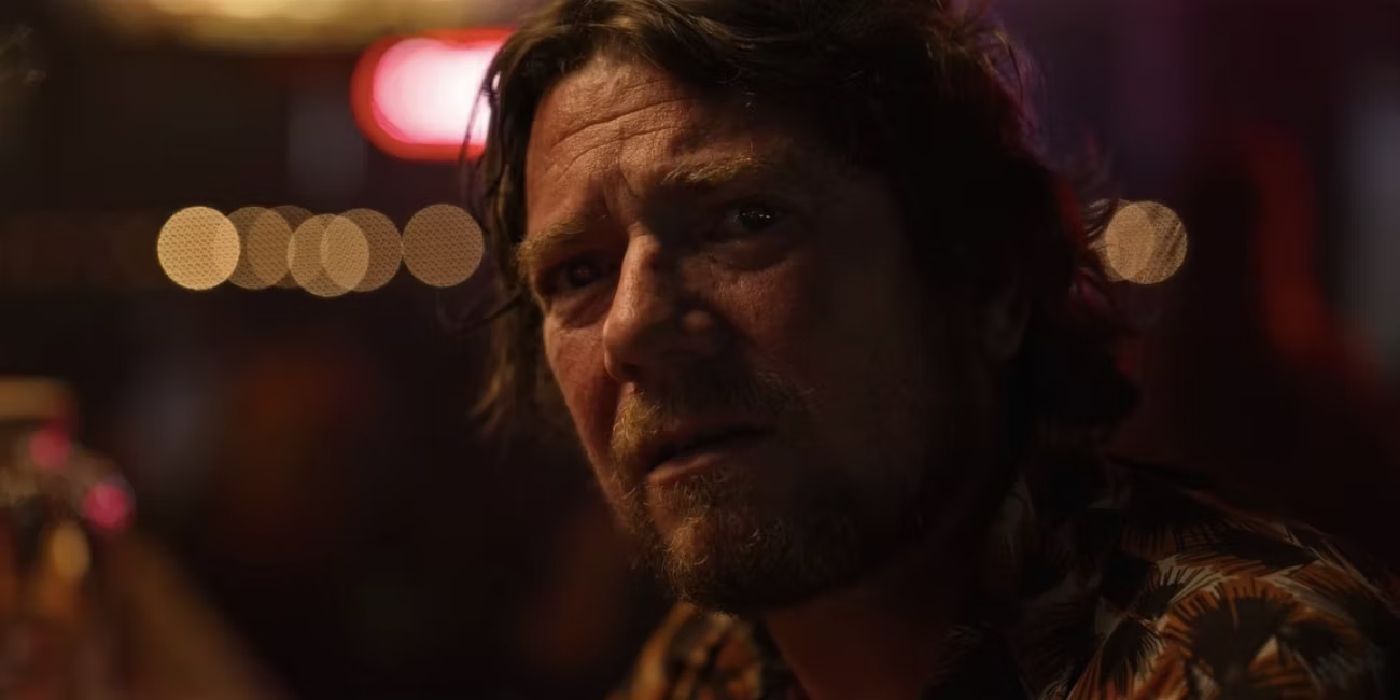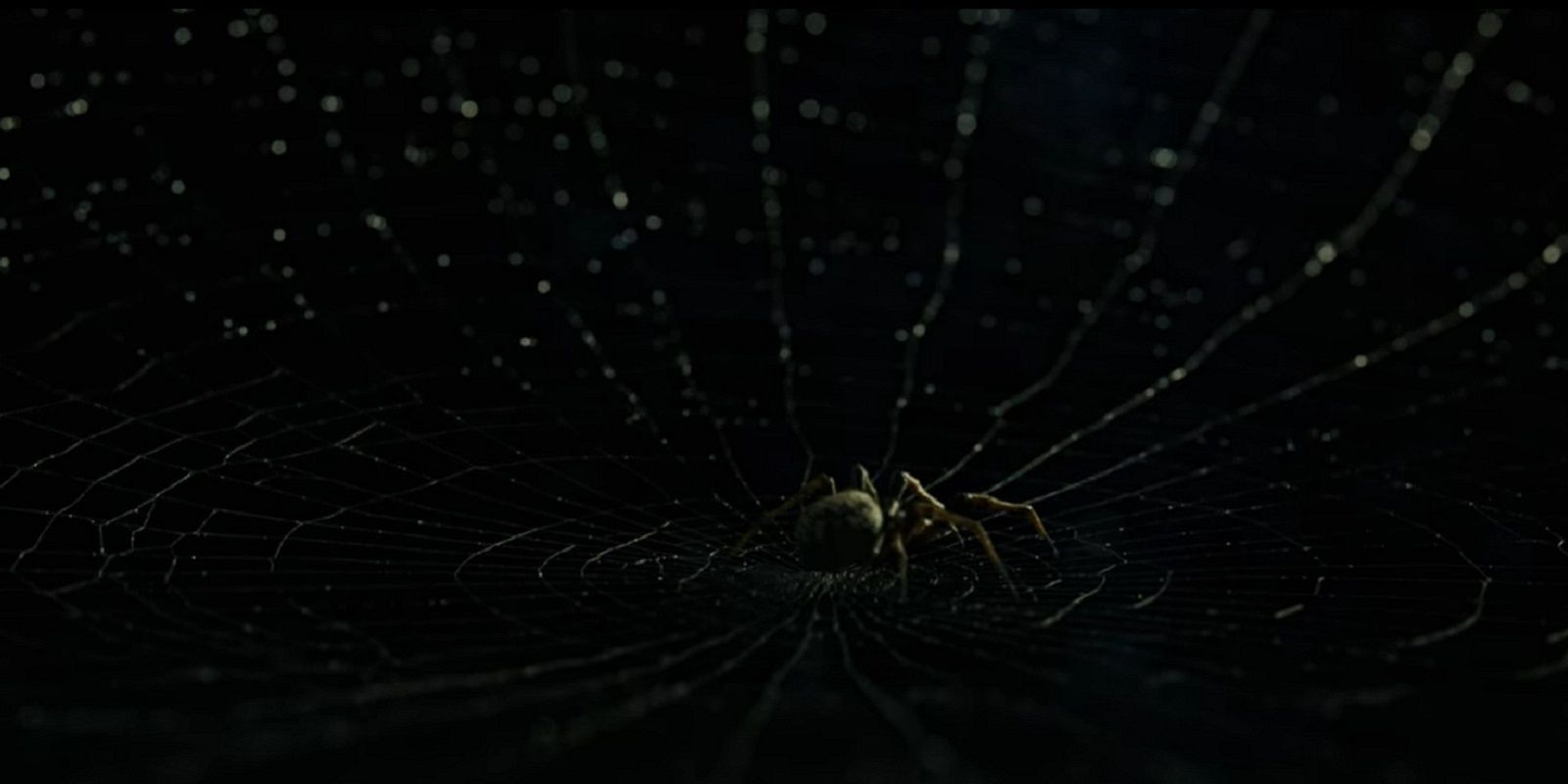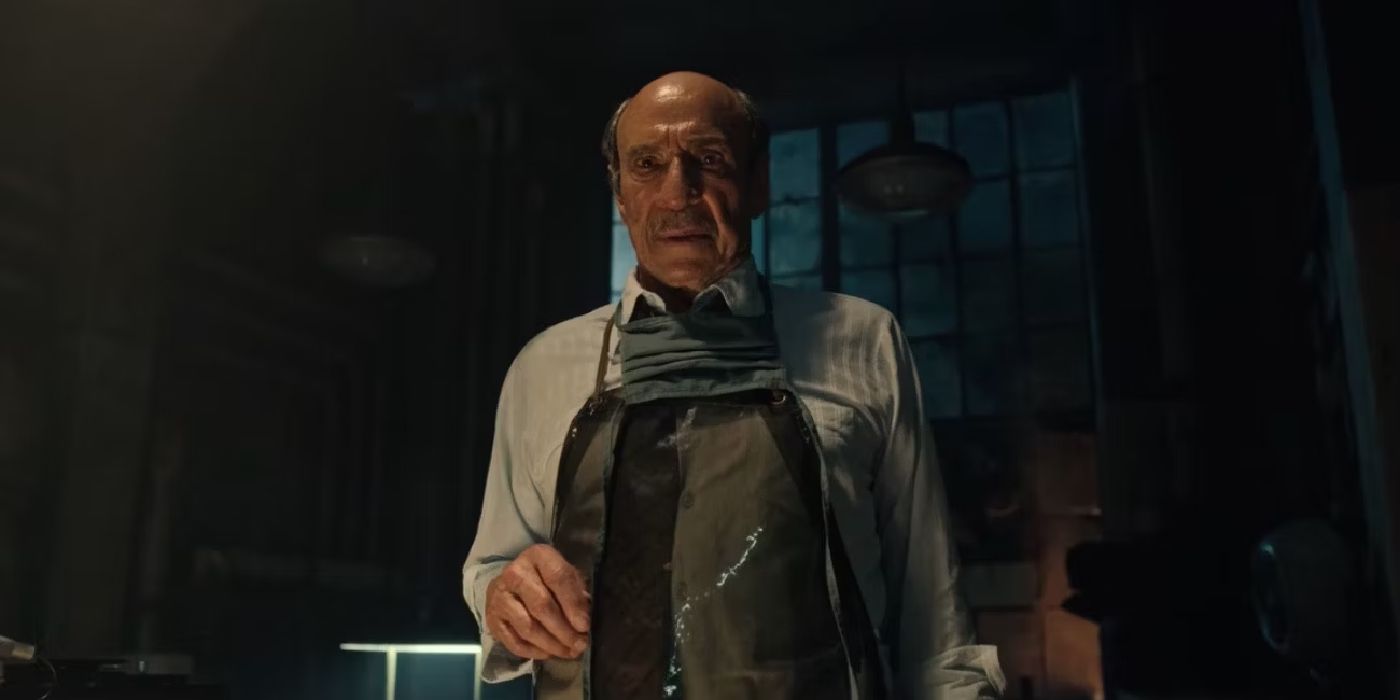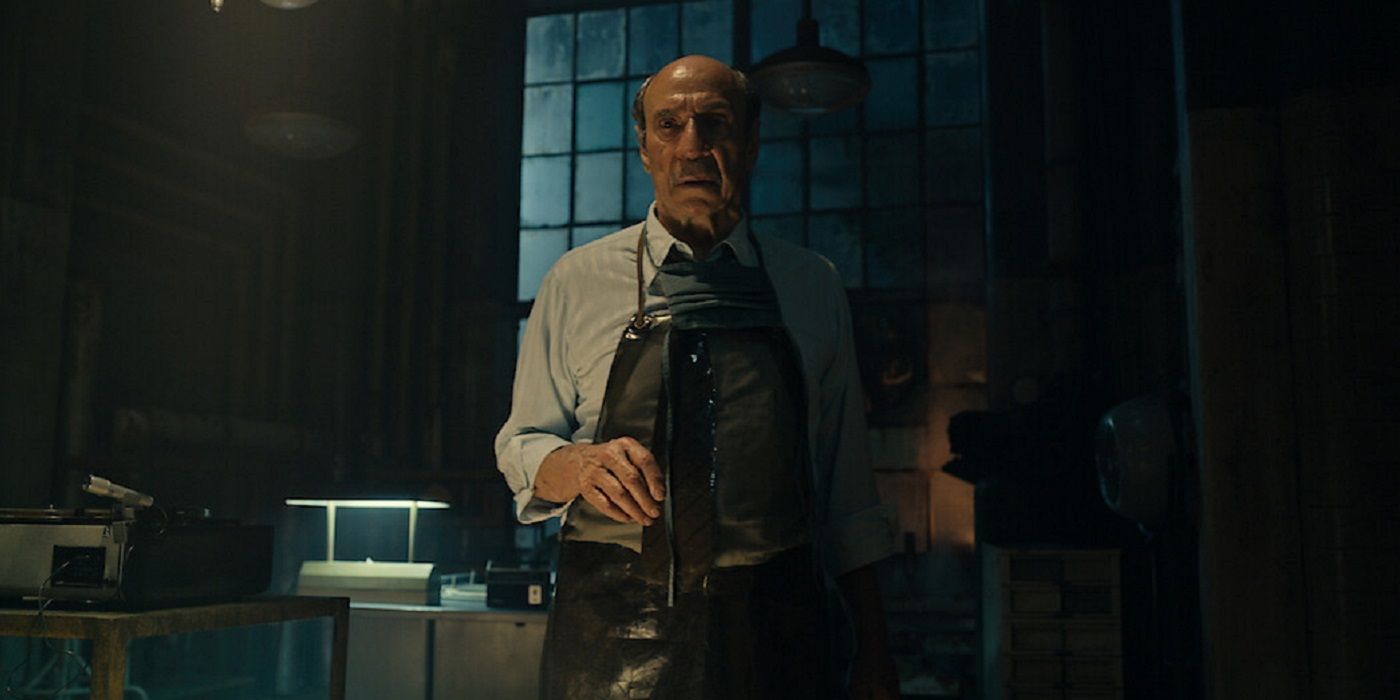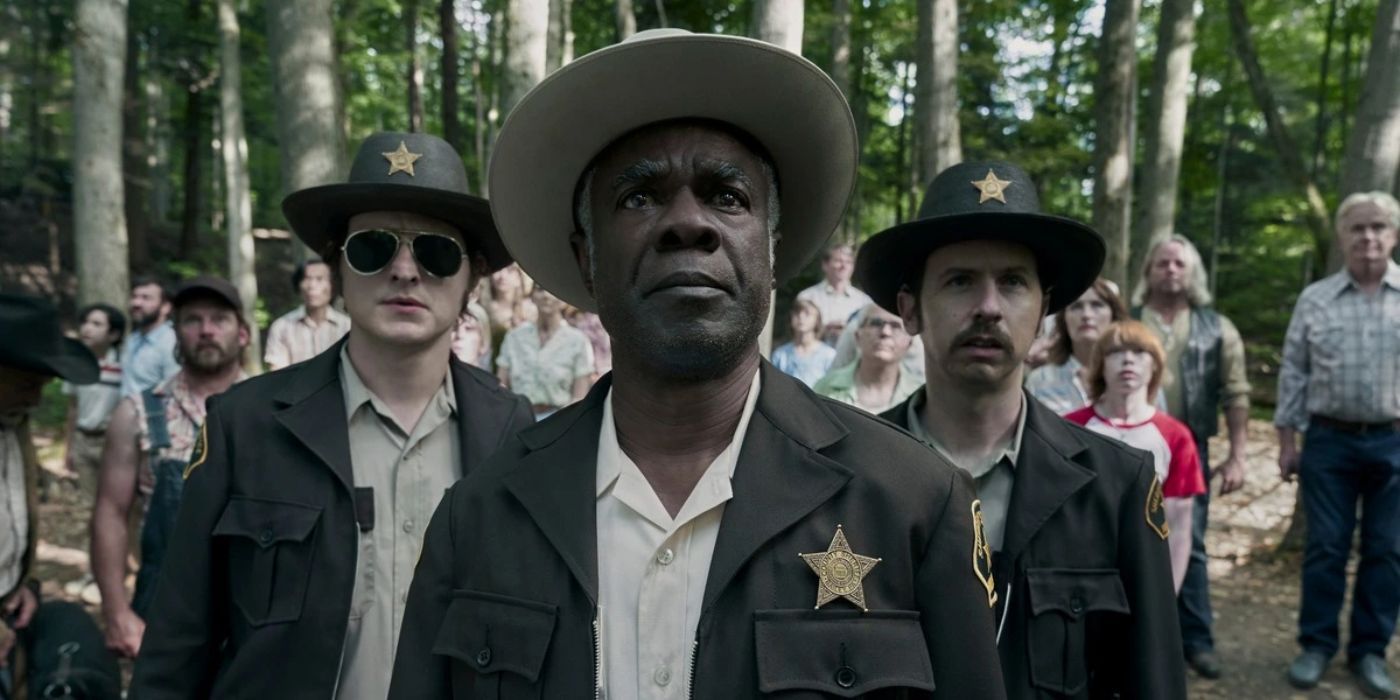Warning! SPOILERS for Guillermo del Toro's Cabinet of Curiosities.Guillermo del Toro's Cabinet of Curiosities' episode 3, "The Autopsy," initially explores the chilling horrors of an alien invasion, but toward the end presents some intriguing questions surrounding humanity's place in the universe. Making the best out of its limited runtime, Cabinet of Curiosities' "The Autopsy" is meticulous with its attention to detail, effectively creating an inclusive atmosphere for viewers. The episode also stands out compared to most alien horror narratives because it ingeniously presents the perspectives of both a sadistic alien creature and a curious scientific investigator. Both tales unfold in perfect harmony, which not only adds more tension to the overarching plot but also makes the episode's ending worthwhile.
After enough build-up, Cabinet of Curiosities' "The Autopsy" episode presents a series of body horror visuals toward the end. Other than being disturbing, these visuals serve as narrative devices that highlight a man's struggles and ultimate win against a savage alien parasite. While this proves to be an optimistic closure to an otherwise bleak episode, the Netflix horror series ends on an uncertain note that reinstates its theme of cosmic dread. Here is the Lovecraftian ending of Cabinet of Curiosities' "The Autopsy" episode explained.
The Alien, Its Abilities, And Origins Explained
Sheriff Craven tells Doctor Carl that Eddie Sykes, an itinerant worker, visited the woods to watch a meteor shower. He was missing for nine months after that before showing up in Bailey under the name of Joe Allen. Since Joe Allen is later revealed to be the central alien's host, it seems likely that the alien came from the meteor shower using the spherical spacecraft that Sykes took home. When Sykes was asleep the same night, the alien crept inside him through his mouth and made him his host. To maintain anonymity, the alien gave its host a new identity, Joe Allen (played by Luke Roberts from the cast of The Batman), and then proceeded to hunt more humans to stay alive. Considering how all the victims of the alien have no blood left in their bodies, it is evident that it consumes only human blood for survival.
Joe Allen's bar interaction with his first victim suggests the alien uses mind control to lure its prey and also has other telepathic abilities. As Joe later explains to Carl, the alien does not possess any senses and only relies on its host's sensory organs to perceive the material world. It is, however, a highly intelligent otherworldly being (similar to the one in John Carpenter's The Thing) and quickly learns to neurologically splice itself with its hosts. While at it, the alien is also able to keep its hosts conscious in such a way that they have almost no control over their minds and bodies but can still feel the anguish the alien is putting them through.
Why Did The Alien Flay Its First Victim's Skin
Carl notices a small incision at the bottom of one victim's sternum. Upon further investigation, he notices that the incision curves to the heart, suggesting that the victim's blood was extracted through the incision's pathway. This scene establishes that the alien can feed on its victim's blood without significantly harming their body, which makes its first kill relatively strange. When the cops find the first victim's body on a tree trunk in the Guillermo del Toro horror series, half of his skin is flayed. For a creature who only consumes human blood through an opening made to the heart, the grotesque method of killing the first victim seems rather unusual. While there is no direct explanation for this in Cabinet of Curiosities' "The Autopsy," it seems likely that the alien was trying to figure out human anatomy with its first victim to later kill others without leaving any evidence of its existence behind.
Other than that, the alien also seems to have sadistic tendencies. Instead of being a mindless parasite, it clearly derives pleasure from a victim's pain (similar to the Cenobites from Hellraiser). Even when it is about to harvest Carl's body in the episode's final moments, it blatantly talks about how it will use Carl's friend for nourishment while making him experience all the pain that comes with it. The alien also tells Carl that it intentionally kept the brains of two of its victims alive to haunt them by whispering everything it was doing to them. This proves that despite having no senses, the alien is a highly conscious being that enjoys torturing its victims before killing them.
The Symbolism Behind The Spiders Explained
Cabinet of Curiosities' "The Autopsy" episode often directs Doctor Carl's vision to spiderwebs with vicious spiders preying on insects. Since these spiders and their webs seem to follow Carl wherever he goes, they come off as bad omens that allude to his imminent death. However, toward the end of Cabinet of Curiosities' "The Autopsy," when Carl kills himself for the greater good and uses his death to overpower the alien parasite, the spiders become symbols of destiny and manifestation. Since the neuron connections in the human brain are often visually correlated with spider webs that are made of thousands of interconnected strands of silk, the spiderwebs also allude to how the alien splices itself to a host's neural network and then uses it to control the host's senses and lure its prey. Interestingly, the brain's neuron network is also often paralleled with clusters of galaxies, which seems to be in tandem with the episode's cosmic themes.
What Prompts Carl To Stop The Autopsy
While Doctor Carl (played by F. Murray Abraham from Moon Knight's cast) curiously performs autopsies in his lab, there is a scene where the hair behind his neck suddenly stands up, and when he looks at himself in the mirror, his reflection asks him to stop. This scene could mean that Carl, as a sharp-witted man, senses something is seriously wrong with Joe Allen and his victims. Owing to this, even before things escalate, he senses danger and his strong intuition makes him question his actions. Considering how Joe Allen used telepathy to control his first victim, it is also possible that despite having little to no control over his body, Eddie Sykes was somehow able to tap into the alien's consciousness and use its telepathic abilities to warn Carl.
Why Did Carl Kill Himself To Stop The Alien
Toward the end of Cabinet of Curiosities' "The Autopsy," while transferring itself from Joe Allen's body to Carl's, the alien uses Joe Allen's voice to egotistically reveal that others of his kind are hideous and have evolved to live without sensory organs. The alien also tells Carl that it was a small larva when it entered Sykes's body through his mouth. After growing significantly since then, it needs to make a big enough incision on Carl's body to get inside him. Taking this as a cue, Carl realizes that the alien is only as strong as its host. To deprive the alien of nourishment, Carl uses his scalpel to rupture the main artery on his neck. He then uses the same scalpel to stab his ears and eyes to ensure that the alien does not get access to his primary sensory organs. This, for obvious reasons, ultimately kills Carl but helps him stop the alien from harvesting other humans.
In its opening scenes, Cabinet of Curiosities' "The Autopsy" establishes that Carl has cancer. However, as a man of science, he refuses to give the disease any sense of autonomy over his life. In some ways, the alien represents Carl's cancer in the sense that Carl takes control of his own life and death by stopping the parasite from taking over his body. By doing so, not only does he hold on to his autonomy but also saves humanity from the alien's carnage.
Is The Alien Dead In Cabinet Of Curiosities: The Autopsy's Ending?
Before succumbing to his wounds, Doctor Carl uses the blood from his neck to etch a message for Sheriff Craven (played by Glynn Turman from Fargo season 4's cast) on his chest: “play tape, burn me.” The "tape" in his message refers to the audio recordings of his autopsies, which serve as proof of the alien's existence, and the "burn me" is just a precaution he expects the sheriff to take to ensure the alien is completely destroyed with him. Although Cabinet of Curiosities' "The Autopsy" episode never reveals what happens after Craven discovers Carl's body, it seems likely that the sheriff followed the doctor's orders. However, there is a scene in the episode where the alien acknowledges how its species has "inhabited men for millennia." This indicates that others like him have been among humans for quite some time.
Doctor Carl managed to outsmart one by the end of the episode of Netflix's Cabinet of Curiosities series, but probably many others dropped out from the meteor shower that day and are gradually hunting humans down. Given how they have no literal weapons of mass destruction, their blood-sucking method of world domination seems relatively slow. However, for alien parasites who can seemingly remain immortal as long as they have access to enough hosts, the alien species in Guillermo del Toro's Cabinet of Curiosities' episode 3, "The Autopsy," seems to have all the time in the world to destroy the human race unless Sheriff Craven manages to do something about it.

